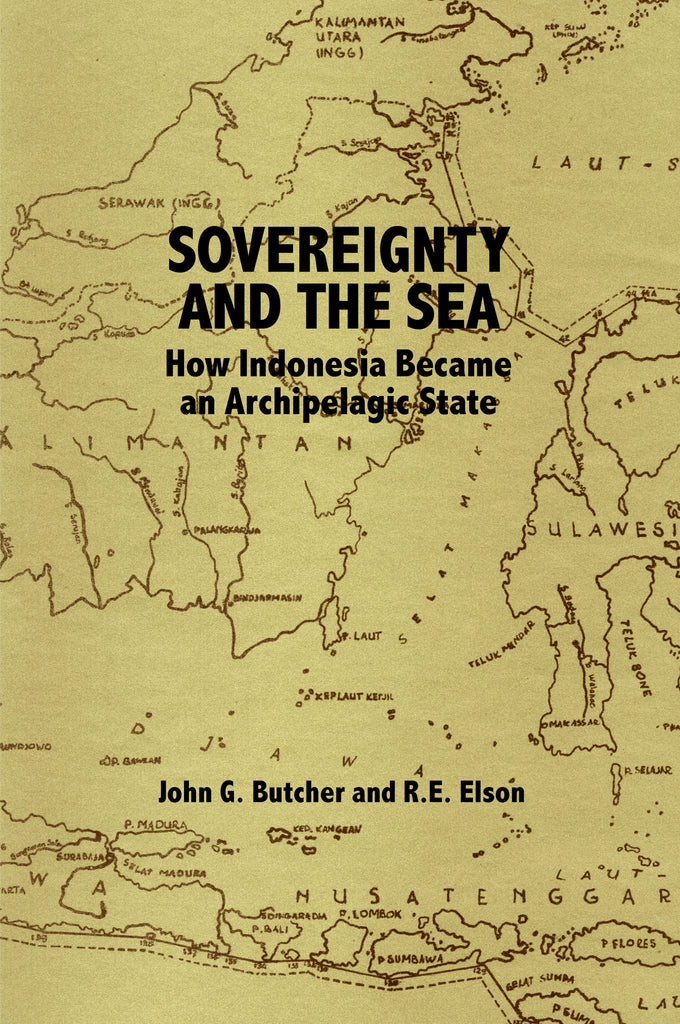Sovereignty and the Sea: How Indonesia Became an Archipelagic State
ICAS Humanities Book Prize 2019: Ground Breaking Accolade
A Choice Recommended Title
By John G. Butcher and R.E. Elson
Until the mid-1950s nearly all the waters lying between the far-flung islands of the Indonesian archipelago were as open to the ships of all nations as the waters of the great oceans. In order to enhance its failing sovereign grasp over the nation, as well as to deter perceived external threats to Indonesia’s national integrity, in 1957 the Indonesian government declared that it had “absolute sovereignty” over all the waters lying within straight baselines drawn between the outermost islands of Indonesia. At a single step, Indonesia had asserted its dominion over a vast swathe of what had hitherto been seas open to all, and made its lands and the seas it now claimed a single unified entity for the first time.
International outrage and alarm ensued, expressed especially by the great maritime nations. Nevertheless, despite its low international profile, its relative poverty, and its often frail state capacity, Indonesia eventually succeeded in gaining international recognition for its claim when, in 1982, the United Nations Convention on the Law of the Sea formally recognized the existence of a new category of states known as “archipelagic states” and declared that these states had sovereignty over their “archipelagic waters”.
Sovereignty and the Sea explains how Indonesia succeeded in its extraordinary claim. At the heart of Indonesia’s archipelagic campaign was a small group of Indonesian diplomats. Largely because of their dogged persistence, negotiating skills, and willingness to make difficult compromises, Indonesia became the greatest archipelagic state in the world.
“The book not only tells the story from the Indonesian point of view, but also paints a comprehensive picture of how Indonesia struggled and succeeded in its archipelagic campaign. Sovereignty and the Sea is easily the best book I have read so far this year.” - Leonardo Bernard, Contemporary Southeast Asia
"This is a very good book... Highly recommended, not only to historians of the law of the sea and of modern South-East Asia, but to those who seek to understand just what lies behind the current maritime order." - James Goldrick, The Mariner's Mirror
John G. Butcher began his academic career at Murdoch University and taught for 32 years at Griffith University until his retirement in 2011.
R.E. Elson is Emeritus Professor of Southeast Asian History at the University of Queensland, having previously worked at Monash University, Griffith University, and the Australian National University.
Publication Year: 2017
560 pages, 229mm x 152mm
23 maps, 5 halftones
Casebound
ISBN: 978-981-4722-21-6
Paperback
ISBN: 978-981-3250-08-6
NUS Press

